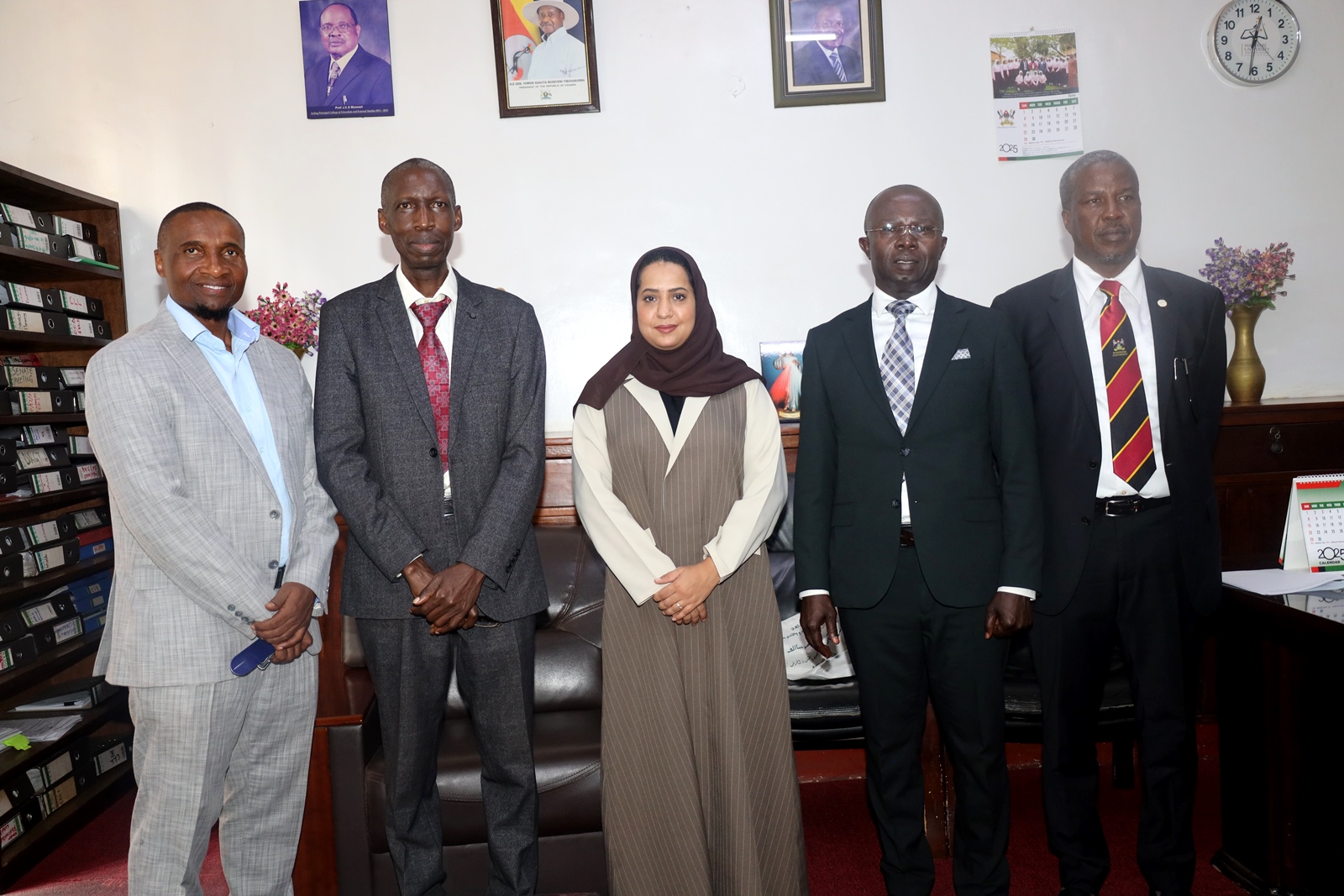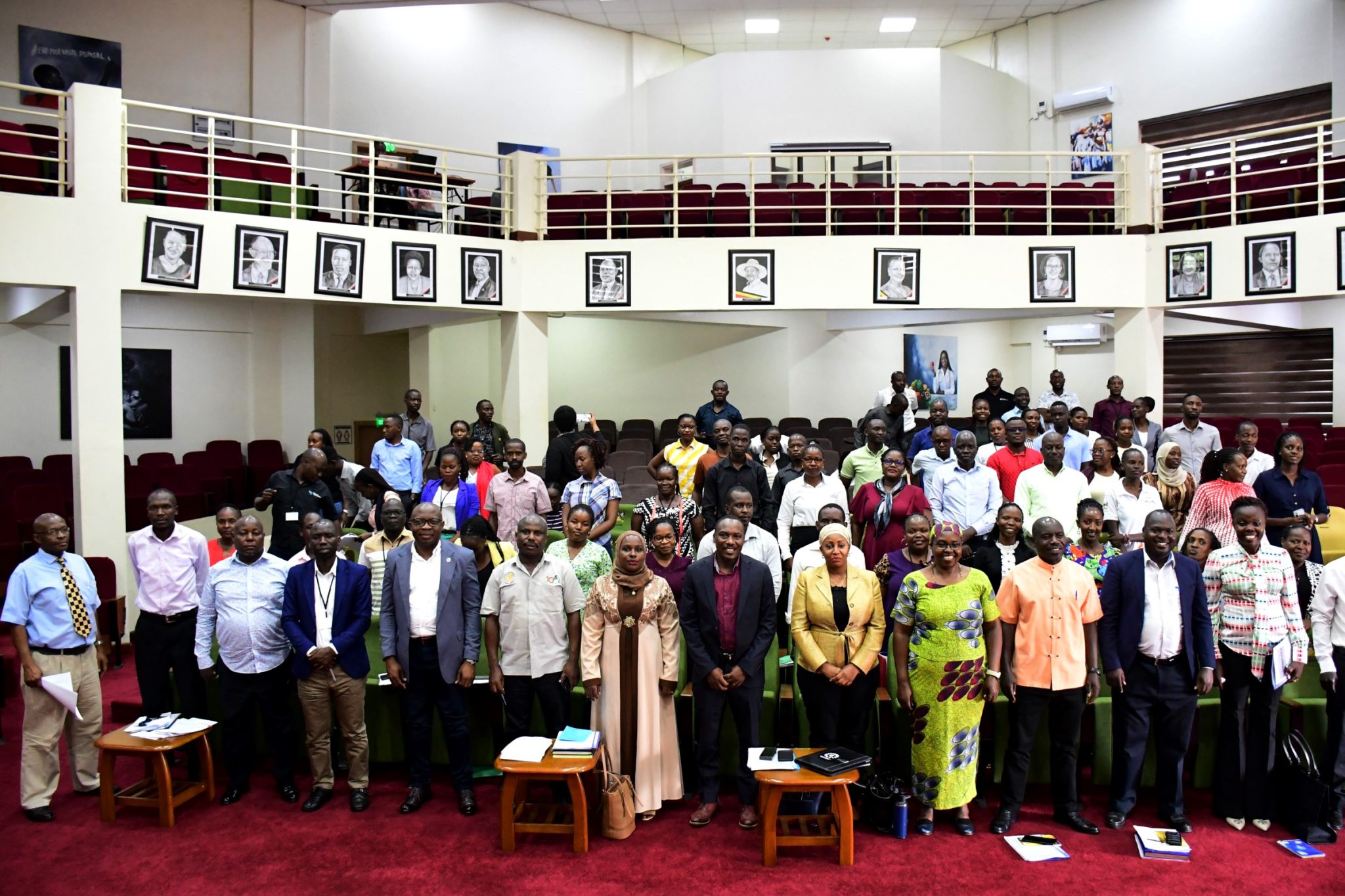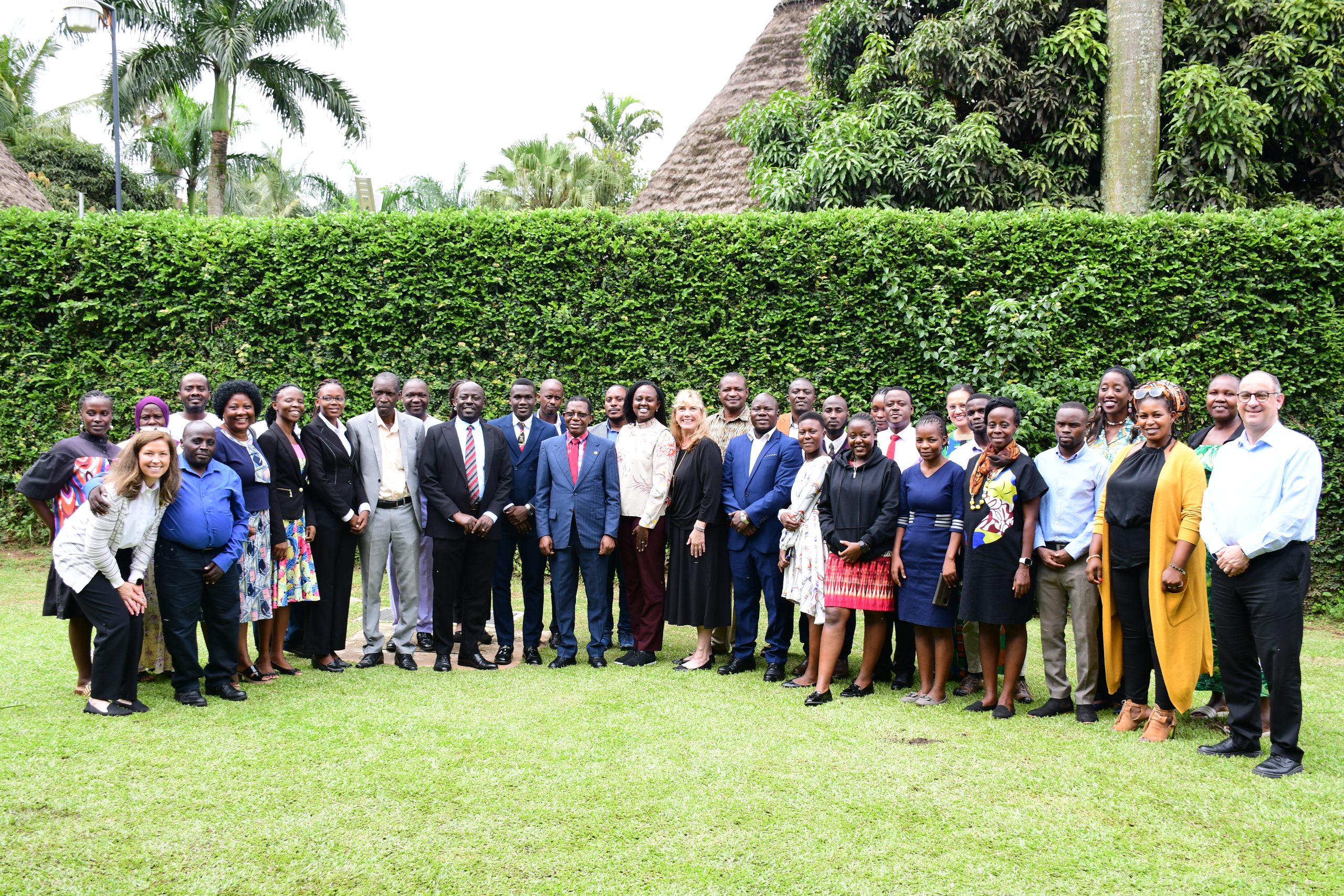The PI-Dr. Walimbwa Michael (Centre red tie) and Mak-RIF’s Dr. Walakira Eddy (Centre stripped tie) with participants at the training workshop on innovative assessments on 15th March 2023, Telepresence Centre, Senate Building, Makerere University.
In the face of new technologies and Artificial Intelligence (AI), there is a call for universities to be more relevant to local needs while also taking into consideration the global needs. Teaching and learning has over the years evolved from being teacher centered to one that is learner centered. With the onset of COVID 19, online learning was quickly adopted across the globe, and most recently AI. These changes in the education system have called for a new mode of assessment of learning. This is what researchers from the College of Education and External Studies (CEES), led by Dr. Walimbwa Michael are advocating for.
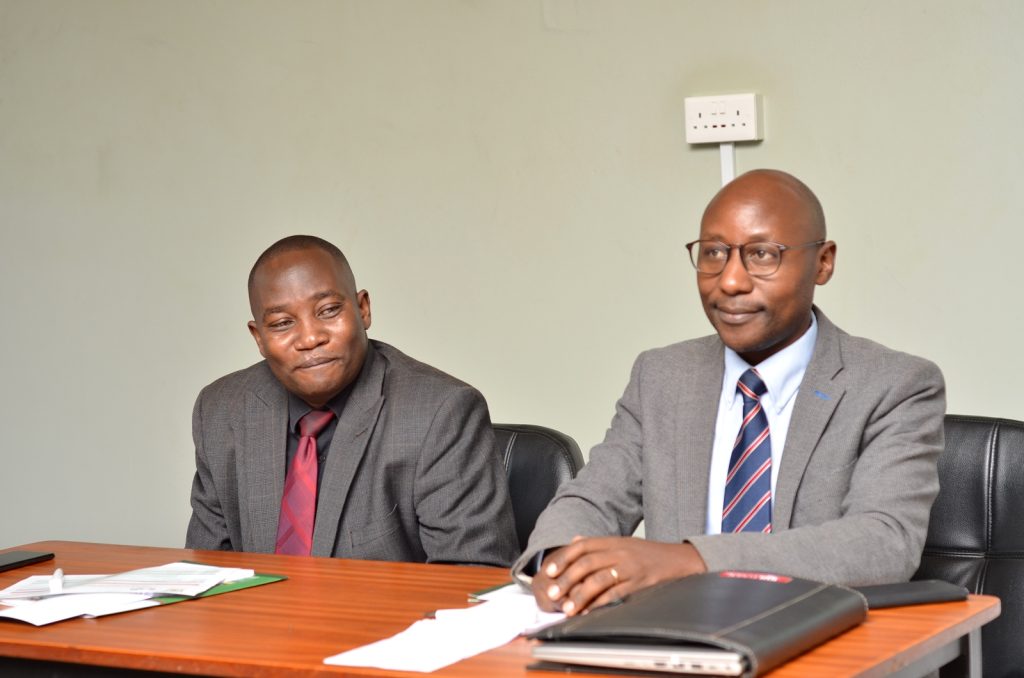
During a training workshop on March 15, 2023 Dr. Walimbwa shared with participants the importance of innovative assessments, saying the world has evolved from the traditional methods of assessment. The researchers argue that there is need for a new mode of assessment which has a constructive alignment. Constructive alignment, according to Dr. Leah Sikoyo one of the partner trainers, demands that there is coherence between different aspects of the curriculum. “The three pillars must speak to each other; Learning outcomes; Teaching and learning experiences and assessment,” Dr. Sikoyo emphasized.
Assessment, she said should take the outcome based approach which emphasizes learning outcomes such as skills acquired, values and problem solving among others. Assessment she said should not only examine lower order thinking levels but also the middle and higher order thinking levels.
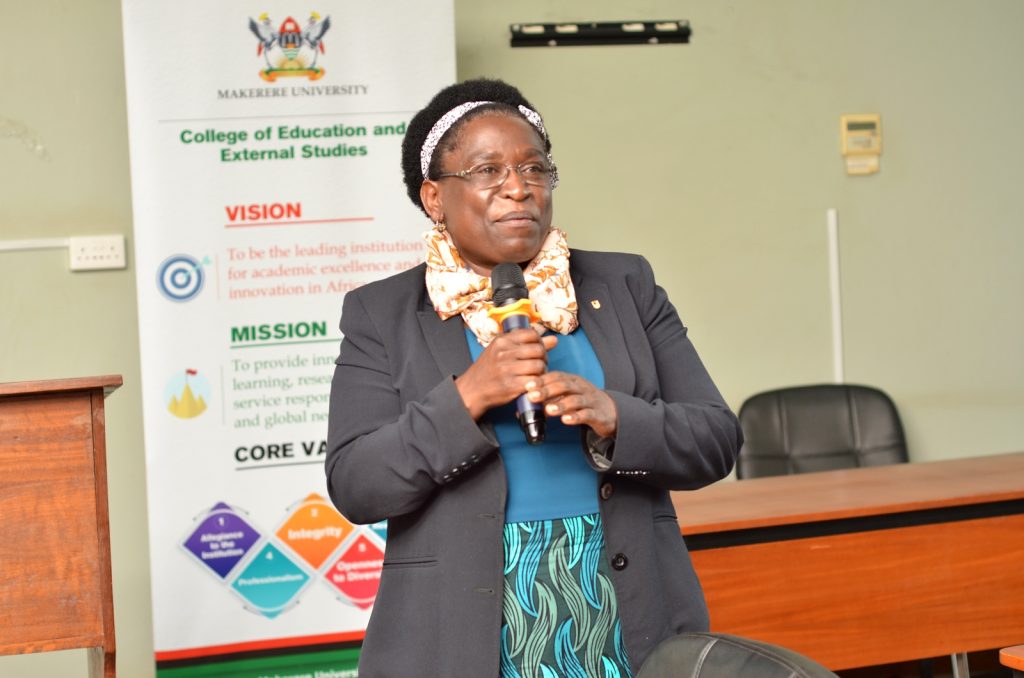
Dr. Sikoyo says that for teachers to be able to carry out innovative assessment, they too have to teach innovatively.
Prof. Betty Ezati, another trainer shared some insights on some modes of innovative assessments. She argued that Innovation – assessment should be geared at improving, solving or alleviating some perceived problem.
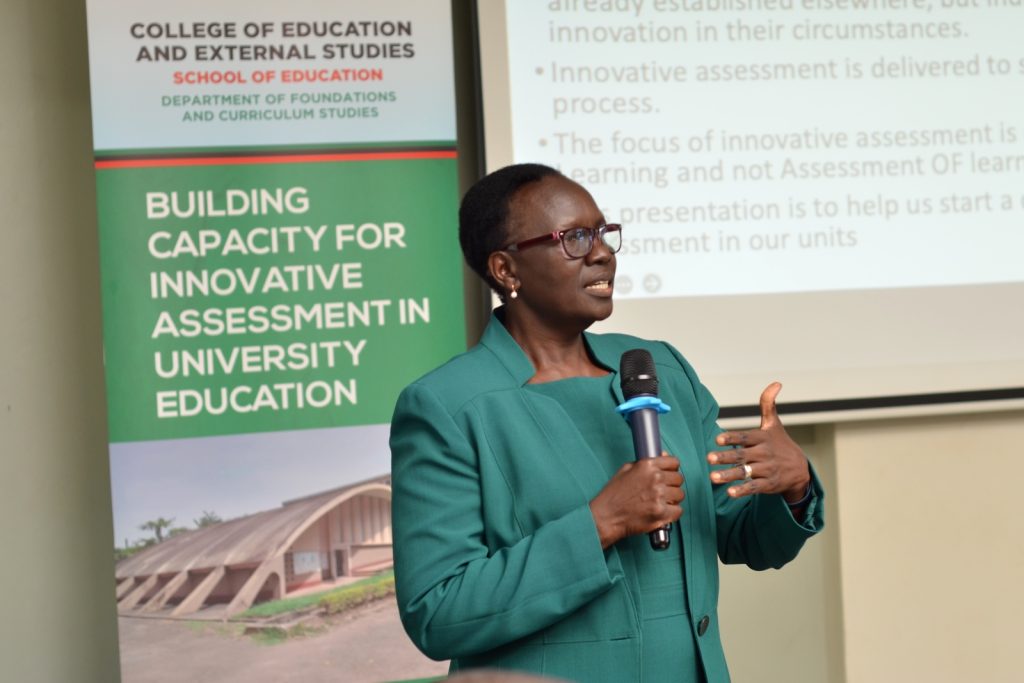
She said teachers need to move away from the traditional mode of assessment which is designed to identify student acquisition of content and the ability to demonstrate this acquisition.
It tends to focus on one answer, less on employable skills, it is mainly summative and written. Dr. Ezati said we need an authentic assessment which emphasizes behavioral change, design assessment to capture ‘what students can do, say and make.
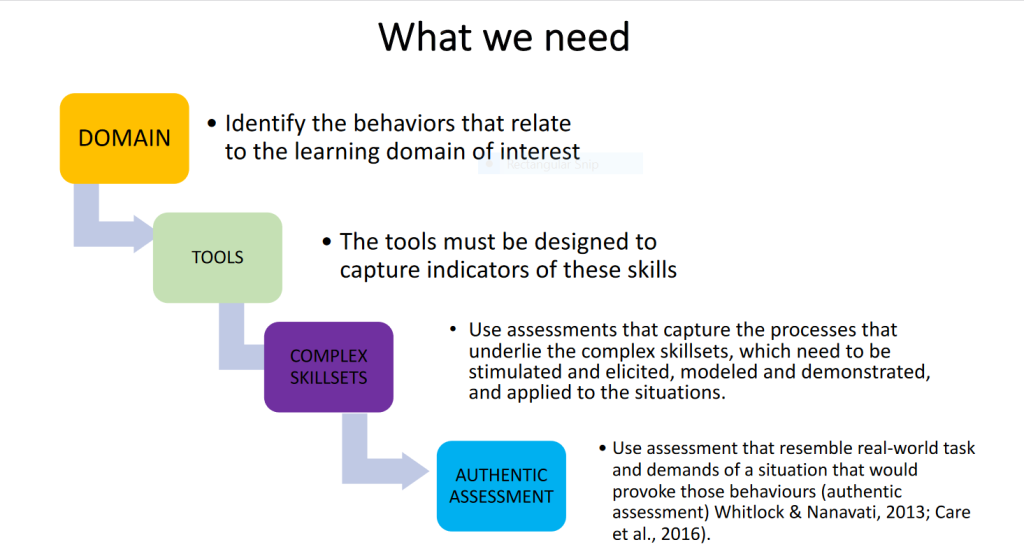
The research team shared some innovative ways of assessing students which include; Self and peer assessment which Dr. Ezati said allows students to actively participate, reduces reliance on the teacher and allows students to be independent and motivated.
Concept Map/Conceptual Diagram. This mode of assessment will require students to present a diagram that depicts known or suggested relationships between concepts and ideas on a given topic.
The other mode of assessment is portfolio, which consists of work selected by the student, reasons for the selection and self-refection on the learning process. This mode of examination may include essays, assignments, lab reports, art work, project reports, grades and test
results.
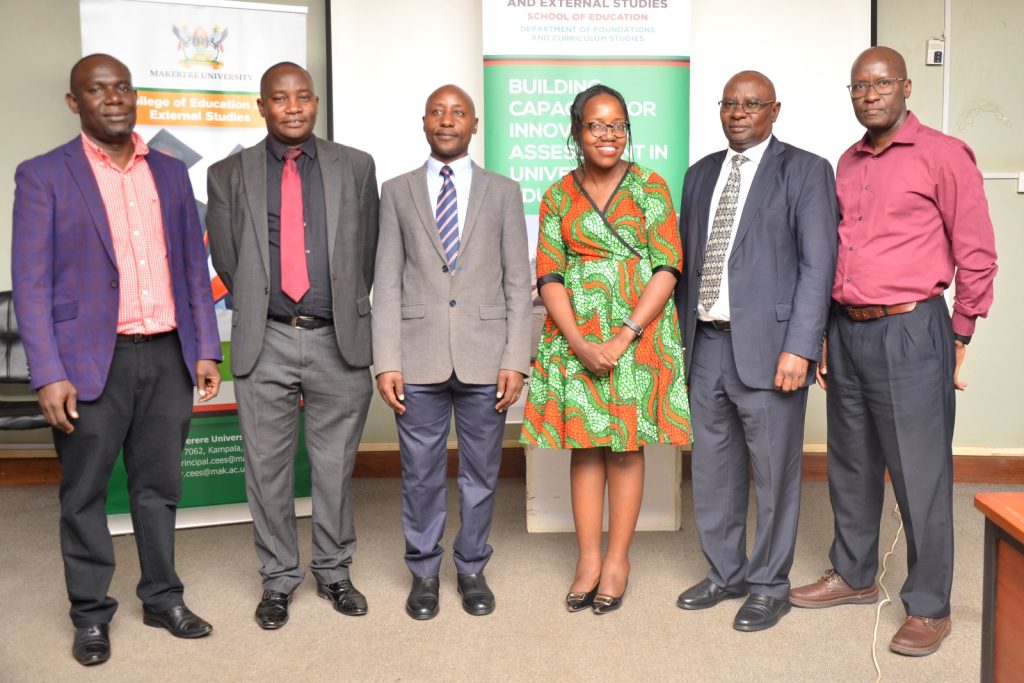
Assessing students through group work, Dr. Ezati said is a form of cooperative learning.
“Teamwork is one of the competencies that industries often require, group work helps to prepare students for their future careers,” she added.
The professor advised the use of Rubric as a tool for Authentic Assessment. Rubrics, she said establishes and sets instructional expectations and standards, offers students a vision of what the facilitator is seeking to accomplish. This she advised should be shared with the learners early enough for them to prepare. She advised that it’s important to access the 21st century skills such as critical thinking, communication skills, innovation and collaboration.
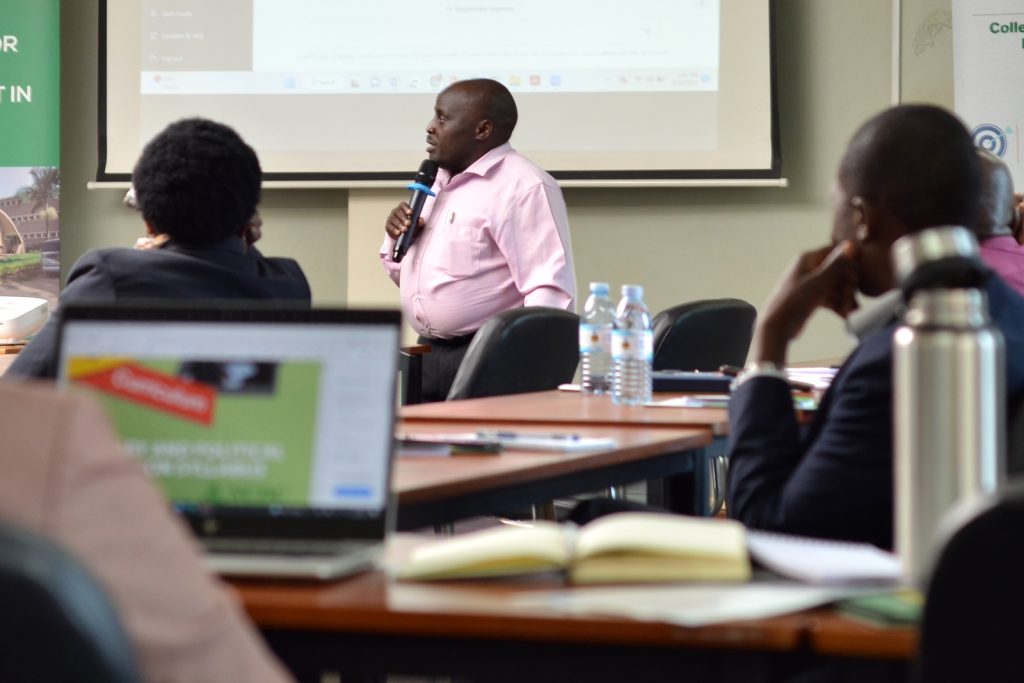
The participants were also given information on how to integrate technology in innovative assessment. The tips, given by Dr. Mayende Godfrey included the use of various online tools including Mentimeter, google jamboard, padlets, discussion forums, quizzes and the Makerere University eLearning Platform.
Speaking during the training workshop the guest of honour, Dr. Walakira Eddy from RIF, appreciated the research team, saying the topic of research is an important one for all academic staff of the university. He reiterated the RIF’s commitment support researchers in the humanities. He also thanked CEES for supporting the university with online learning during the Covid 19 outbreak.
The research team
- Dr. Micheal Walimbwa (PI)
- Dr. Shopi Mbulankende Julius
- Dr. Buluma Alfred
- Dr. Nancy Nabiryo



